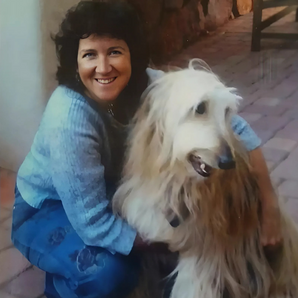No one ever wants to deal with the loss of a pet, but unfortunately, it is something that many people have to go through. The loss of a pet can be an extremely difficult and upsetting experience. It is important to take care of yourself and find ways to distract yourself from the pain. It is important not to blame yourself for your pet’s death.
Why is Coping Hard?
It can be difficult to cope with the loss of a pet. The pet may have been a source of companionship and love, and their loss can leave a person feeling isolated and alone. However, there are ways to ease the pain of losing a pet. Talking to friends and family about the loss, or writing about the pet, can help to express grief and begin the healing process. There are also support groups available for people who are struggling to cope with the loss of a pet.
Ways to Cope with Pet Loss
Coping with pet loss is never easy. It often leaves people feeling lonely, upset and confused. But it's important to remember that there are ways to cope with this difficult time in life. Grieving after the death of a pet is not an easy process. There are some ways that can help you get through this difficult time.
- Talking about your feelings with friends or family members
- Writing down your thoughts
- Creating a memorial for your pet
- Keeping the memory of your pet alive
- Getting a new animal companion
- Going on a trip or vacation to take your mind off things
- Doing something you love like playing sports or going on hikes

Stages of Grief
The stages of grief are experienced differently by everyone, but there are five commonly accepted stages: denial, anger, bargaining, depression, and acceptance. It is important to remember that these stages are not experienced in a linear fashion and that it is normal to move back and forth between them. Grief is a process that takes time and there is no right or wrong way to experience it.
- Denial - When you refuse to believe that your pet has died and you might even deny seeing or smelling their remains or refuse to believe that they're gone for good.
- Anger - When you blame yourself for not being there when your pet needed you and take out your anger on other people.
- Bargaining - When you hope against hope that if you do something different then your pet will come back to life.
- Depression - When all the joy has left your life and all you can do is think about how much you've lost.
- Acceptance - When you finally come to the realization that your pet has died and it's not coming back and you go into mourning.
Finding Support
If you're struggling with Pet Loss, it can be helpful to talk to friends and family about it. They may be able to offer support and understanding. Additionally, there are often support groups available to help with Pet Loss. These groups can provide a sense of community and allow you to share your experiences with others who understand what you're going through. Getting in touch with a Pet Loss Counsellor can also be helpful.
Remembering Your Pet
Remembering your pet after they have passed away is a difficult. One way to help cope with the loss is by creating a memorial for them. This can be done by planting a tree or flowers in their memory, setting up a small shrine with their favourite toys or pictures, or by journaling about your memories with them. Taking the time to remember and honor your pet in this way can help bring some peace during this difficult time.
Creating a memorial or journal in honor of your pet is a beautiful way to keep their spirit alive while also providing you with an outlet to express your grief.

How to Talk to Your Kids About Losing a Pet
We all know that it can be hard to talk to kids about death. But when a pet dies, it can be even more difficult. It is important for children to know what has happened and how they are feeling. They might not understand the meaning of death at first, but they will eventually get the concept.
In order to make this conversation easier, you should try to use some of these tips:
- Introduce the topic by talking about your feelings and emotions
- Use simple words and avoid using too much detail
- Ask questions so that your child feels like they are in control of the conversation
Conclusion:
Pets often become a member of the family and their absence can trigger feelings of abandonment and isolation. It may be hard to believe, but pet loss can be just as difficult as any other form of loss.
The grieving process is different for everyone, but there is light at the end of the tunnel. Some people grieve for a short period of time, while others may grieve for months or even years. There is no right or wrong way to grieve, and each person will experience grief in their own way.
Grief can be incredibly difficult, but with time and support from loved ones, it is possible to move on. The pain will eventually go away, and you will be able to remember your loved one with fondness and love.
We are so thrilled to introduce you to Pet Grief & Loss Counselor Kate McGahan. Kate has been a Hospice Counselor and Clinical Social Worker for over 35 years. She published three books in the "Jack McAfghan" Trilogy to help people through grief and a veterinary guide for patients facing end of life decisions with their pets. Whether you are struggling with pet loss or the death of a loved one, Kate's books will apply to your personal journey and bring you out the other side of grief.
In this video we discuss about getting through the grieving process, how to handle grief and remembering your pet. This Interview will help pet lovers adapt and recover from their loss.
Get your free eBook: www.katemcgahan.com







